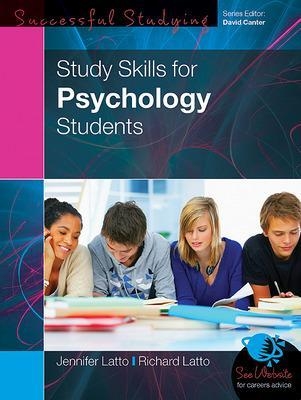
Study Skills for Psychology Students
Open University Press (Verlag)
978-0-335-22909-3 (ISBN)
This practical handbook is an essential companion for psychology students. From day one of your degree, it will make all the difference.Based on the authors' extensive knowledge of psychology, it includes:
Key approaches in psychology The best ways to study How to use IT effectively Producing excellent assignments and exams Helpful advice on statistical methods Tackling projects and dissertations An introduction to careers in psychology
It contains exercises, tips, advice from students, and a glossary of commonly used terms in psychology.An accompanying website www.openup.co.uk/psychologysuccess has more information on psychology-related careers with up-to-date web links.
Jennifer Latto is an educational psychologist who qualified at Cambridge and University College London. She worked as an Educational Psychologist in Essex and Cheshire. After lecturing in Cambridge and Liverpool, she held a Chair in Educational Psychology at Liverpool John Moores University where she became Deputy Vice Chancellor. She is a Chartered Psychologist and Associate Fellow of the British Psychological Society. Richard Latto is a cognitive psychologist at Liverpool University where he was the Head of Psychology for 15 years. He taught Psychology at Cambridge, Erasmus and Oxford Universities before joining Liverpool. A Fellow, Trustee and Chair of the Psychology Education Board of the British Psychological Society, he is a Chartered Psychologist and was a member of the panel that produced the current Psychology Benchmark Statement for the Quality Assurance Agency, which guides the curriculum for all British psychology degrees.
Introduction: why you need this handbook and how to use it
1 First things first
1.1 About psychology
1.2 How your university or college works
2 Organizing inputs
2.1 What kind of student are you?
2.2 Structuring information
2.3 Formal teaching
2.4 Learning in groups
2.5 Learning through experience
2.6 Personal development profiling
3 Using IT
3.1 Using learning resource centres
3.2 Using in-house electronic resources
3.3 Surfing the web and evaluating what you find
3.4 Saving information effectively
3.5 Plagiarism detection software
4 Achieving good outputs
4.1 The purposes of assessment
4.2 Writing essays
4.3 Writing practical reports
4.4 Giving presentations (or how to avoid death by PowerPoint)
4.5 Preparing and presenting posters
4.6 Contributing to seminars
4.7 Taking examinations
4.8 Overall thoughts on assessment
5 Research projects and dissertations
5.1 Planning your timetable
5.2 Choosing a topic
5.3 Making the most of your supervisor
5.4 Designing the project
5.5 Getting ethical approval
5.6 Running the project
5.7 Reporting and analysing your results
5.8 Common errors of interpretation
5.9 Writing up
6 What next?
6.1 Introduction
6.2 Ideas about careers in general
6.3 Regulation
6.4 Careers in psychology
6.5 Postgraduate courses
6.6 Working and training abroad
6.7 Other careers
6.8 Longer term
Appendices
1 How to reference your work
2 Answers to exercises
3 Acronyms and abbreviations
4 Glossary
5 Common terms (and some of their alternatives) used instatistics
6 Further reading
| Erscheint lt. Verlag | 16.11.2008 |
|---|---|
| Verlagsort | Milton Keynes |
| Sprache | englisch |
| Maße | 169 x 225 mm |
| Gewicht | 370 g |
| Themenwelt | Geisteswissenschaften ► Psychologie ► Allgemeines / Lexika |
| Sozialwissenschaften ► Pädagogik | |
| ISBN-10 | 0-335-22909-3 / 0335229093 |
| ISBN-13 | 978-0-335-22909-3 / 9780335229093 |
| Zustand | Neuware |
| Haben Sie eine Frage zum Produkt? |
aus dem Bereich


